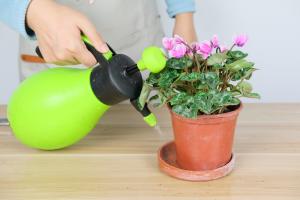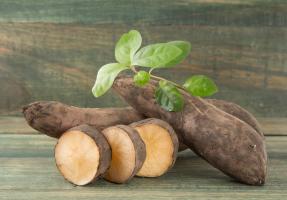Can We Use Plastic Pots for Plants?
Plastic pots are a common sight in gardening and cultivation. They are light, durable, and easy to maintain. But the question is, can they be used for growing plants? Let's find out.
Advantages of Using Plastic Pots
Plastic pots are popular for several reasons. Firstly, they are affordable and widely available. Secondly, they are lightweight and easy to move around. Thirdly, they are durable and can last for a long time. Fourthly, they don't break easily, unlike ceramic or clay pots. Lastly, they are easy to clean and maintain. These advantages make them a good choice for many gardeners and plant lovers.
Disadvantages of Using Plastic Pots
Although plastic pots have many advantages, they also have some disadvantages. Firstly, they are not biodegradable, meaning they cannot be decomposed by natural processes. Secondly, they may not provide good insulation, which can affect the growth of some plants. Thirdly, they may lack sufficient drainage holes, which can cause waterlogged soil and root rot. Lastly, they may not be aesthetically pleasing and may not match the décor of your garden or home.
How to Choose the Right Plastic Pot
If you decide to use plastic pots for your plants, make sure to choose the right ones. Look for pots that have good drainage holes, enough size for the plant's root system, and are made of food-grade plastic. Food-grade plastic does not contain harmful chemicals that can leach into the soil and affect the plant's health. Additionally, choose the right color to match your garden or home décor. If possible, go for recycled plastic pots to reduce plastic waste and protect the environment.
Alternatives to Plastic Pots
If you are looking for eco-friendly alternatives to plastic pots, there are several options available. Firstly, you can use biodegradable pots made of natural fibers like coconut coir, rice husks, or bamboo. These pots will decompose over time and enrich the soil with organic matter. Secondly, you can use ceramic or clay pots that provide good insulation and drainage. They also add a rustic charm to your garden. Thirdly, you can repurpose old containers like tin cans, glass jars, or wooden boxes to grow plants. This reduces waste and gives a unique look to your garden.
The Bottom Line
In conclusion, plastic pots can be used for growing plants, but they do have some disadvantages. If you choose to use plastic pots, make sure to select the right ones with good drainage holes and made of food-grade plastic. Moreover, there are several eco-friendly alternatives available if you want to reduce plastic waste and protect the environment. Whatever you choose, remember that plants need not only good pots but also love and care to thrive.

 how many times do yo...
how many times do yo... how many planted tre...
how many planted tre... how many pine trees ...
how many pine trees ... how many pecan trees...
how many pecan trees... how many plants comp...
how many plants comp... how many plants can ...
how many plants can ... how many plants and ...
how many plants and ... how many pepper plan...
how many pepper plan...































